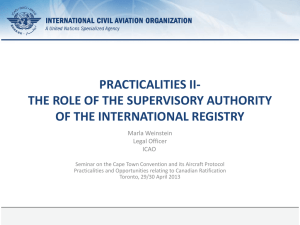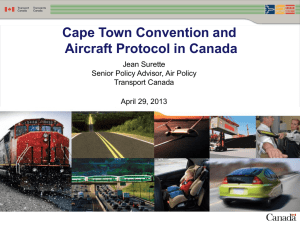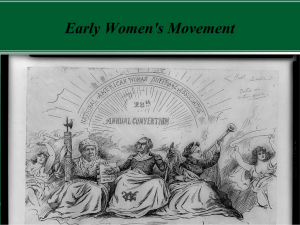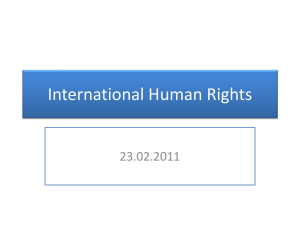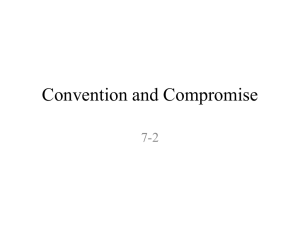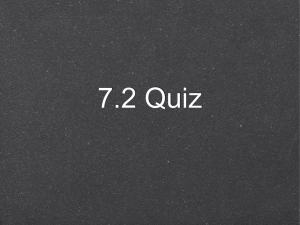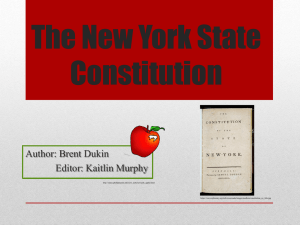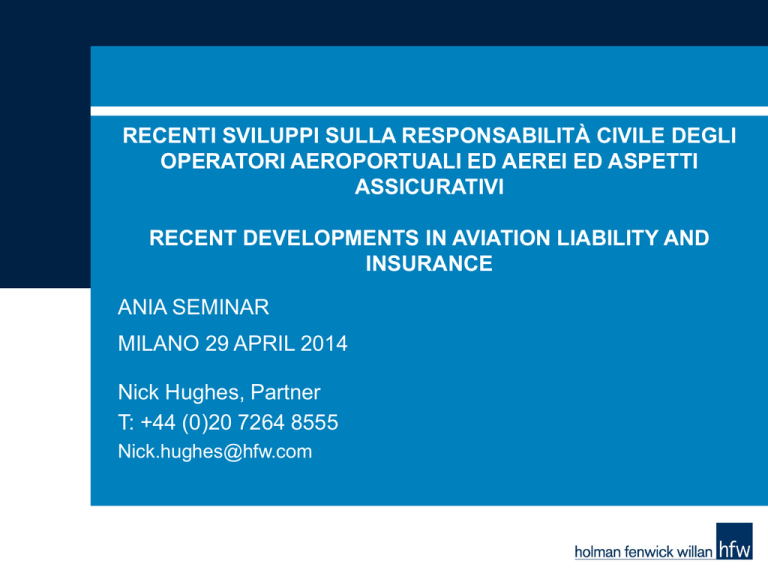
RECENTI SVILUPPI SULLA RESPONSABILITÀ CIVILE DEGLI
OPERATORI AEROPORTUALI ED AEREI ED ASPETTI
ASSICURATIVI
RECENT DEVELOPMENTS IN AVIATION LIABILITY AND
INSURANCE
ANIA SEMINAR
MILANO 29 APRIL 2014
Nick Hughes, Partner
T: +44 (0)20 7264 8555
Nick.hughes@hfw.com
MAS B-777-200 9M-MRO 08.03.2014
Aircraft Hull claims – AVS103 issues for hull all risks and for hull war
risks insurers
Which insurers agree AVS103?
Is AVS103 binding?
Which losses can be paid by AVS103?
Risks
Values
Underlying claims handling
Final loss allocation
Ancillary issues
Asiana Airlines B777 HL7742 – San Francisco 06.07.13
Foreign Air Carrier Family Support Act 1997 – 49 U.S.C. 41313
Prohibition against unfair and deceptive practices – 49 U.S.C.
41712
D.O.T. Consent Order – 2014-02-20 - 25.02.2014
Family assistance plan requirements
Reliable "toll free" telephone number and staff to take calls
Notification to families of accident as soon as practicable
Sufficient resources
Civil Penalty of US$500,000
Air Accident Investigation Reports
(Admissibility as evidence in civil proceedings)
UK
Air Accident Investigation Branch (Department of Transport)
Chicago Convention 1944 Annex 13
Council Directive 94/56/EC of 1944
Civil Aviation (Investigation etc) Regulations 1996
EU Regulation 966/2010
Powers of Inspectors, conduct of investigations, their role and standing.
Objective of investigation
Published report (but evidence and records of investigation remain
private, subject to application of a court)
Air Accident Investigation Reports
Use of report by parties in liability claims on burden of proof:
Factors
(expert) opinions
Concerns of Inspectors
Make their work more difficult to do
Would inhibit co-operation of others in their work
Need to give evidence in court
HELD
Reports not conclusive and party may challenge them. Party still bears
a burden of proof
Reports are of value, impartial, authoritative, prompt
Facts – prima facie admissible
Opinions – admissible as expert evidence; with judge to assess what weight
should be given to the evidence
Hoyle v Rogers (2014) EWCA 257
Air Carrier Liability – Montreal Convention 1999
Ratification update – MC99 now has 105 states party
Cases:
Accident
Failure to direct
- Siddiq v Saudi Arabian Airlines (2013 M.D. FC)
Crew behaviour
- Dogbe v Delta Airlines (2013 E.D.N.Y)
Injection given by doctor
- Anne Ford v Malaysian Airline Systems Berhard (2013 EWCA (iv 1163))
Cramped seating
- Nguyen v Qantas Airlines Ltd (2013 QSC 286)
Embarking and Disembarking
Emotional injury/sex toy
Bridgeman v United Continental Holdings (5th Cir 2013)
Arrest at departure gate
Kruger v Virgin Atlantic Airways (2013 E.D.N.Y)
Delay – damages
Individual v Deutsch Lufthansa AG (Ukraine, Case 757/22177/13-Nov 2013)
Jurisdiction
Principal and permanent residence: diplomats
Fadhliah v Societe Air France (2013 C.D.Cal)
WC jurisdiction
Maranga v Abdulmutallab (2013 S.D.N.Y)
Carriers place of business
[
] v China Eastern Airlines (2013 Cour d'Appel, Paris
Application to third party claims
Rennes Court of Appeals (2013, 13/01146)
UNRULY PASSENGERS AND AMENDMENTS TO THE
TOKYO CONVENTION 1963: CONTEXT
Title: Convention on offences and certain other acts committed on
board aircraft. Signed Tokyo 14 September 1063
In force 4 December 1969. 185 "Contracting States".
Later Conventions
The Hague Convention 1970 (unlawful seizure of aircraft)
Montreal Convention 1971 (unlawful acts)
Montreal Convention 2009 (surface damage: general risks/unlawful
interference)
Beijing Convention 2010 (surface damage from unlawful interference)
UNRULY PASSENGERS AND AMENDMENTS TO THE
TOKYO CONVENTION 1963: SCOPE
The Convention applies to:
Criminal offences; and to
Acts which may jeopardise safety of aircraft/persons
Acts which jeopardise good order and discipline on board aircraft,
Provided done by a person on board an aircraft registered in a
Contracting State,
"In-flight" on high seas or outside territory of any State
NB: "in-flight" means from when power applied for purpose of take off
until landing run ends
UNRULY PASSENGERS AND AMENDMENTS TO THE
TOKYO CONVENTION 1963: MAIN PROVISIONS
Powers given to "aircraft commander":
On (subjective) 'reasonable grounds' which (objectively) are necessary:
to impose upon any person reasonable measures including restraint
necessary for safety/good order or implement other powers;
to require or authorise assistance by crew to restrain;
to request or authorise but not require assistance by passengers to
restrain;
to deliver any person to competent authorities of any Contracting State;
and
to disembark any person
Subject reasonable grounds of belief, power of crew member or passenger,
without authorisation to take reasonable preventative measures that are
immediately necessary to protect safety
Immunity: given to aircraft commander, crew, passenger, owner or operator
of aircraft and charterer "for actions taken in accordance with this
Convention"
UNRULY PASSENGERS AND AMENDMENTS TO THE
TOKYO CONVENTION 1963: MAIN PROVISIONS
(Continued...)
Unlawful seizure of aircraft: hijack: duty on Contracting States to restore
control of aircraft to lawful commander or to preserve his control etc.
Powers and duties of States:
Allow commander to disembark persons
To take delivery from aircraft commander of any person
Power to refuse to admit any person/return him
Jurisdiction: given to State of registration of aircraft
Extradition: offence treated as occurring also in territory of State of
registration of aircraft
UNRULY PASSENGERS AND AMENDMENTS TO THE
TOKYO CONVENTION 1963: REFORM PROPOSALS
New Protocol to the Convention proposed by ICAO legal committee for
diplomatic conference March 2014.
Scope: remove inconsistencies internal to Convention so that "in-flight"
means from moment all external doors are closed following embarkation
until moment such doors are opened for disembarkation.
Enforcement: to define "physical assaults or threats to commit assaults
against crew members and refusal to follow lawful instructions given by the
aircraft commander for safety purposes" as acts which each Contracting
State is encouraged to take measures against by appropriate criminal or
administrative proceedings.
Jurisdiction: extend jurisdiction also to the State of landing and to the State
of the operator. [The proposal leaves open whether this is a general
jurisdiction or only arising when offence or act is committed by or against a
national of that State.]
Jurisdiction: enable a Contracting State to establish its jurisdiction not only
over offences but also over acts committed on board aircraft registered in
such State.
UNRULY PASSENGERS AND AMENDMENTS TO THE
TOKYO CONVENTION 1963: REFORM PROPOSALS
(Continued...)
Provision for co-ordination between Contracting States.
In-flight security officers: (possibly controversial) to give powers and
immunity to IFSOs (in the alternative) either as equal to "aircraft
commander" or in the same way as any other crew member.
Extradition: to extend existing text to refer to the State of operator and State
of landing.
Right of recourse: introduction of a permissive provision re costs recovery
for aircraft operators.
UNRULY PASSENGERS AND AMENDMENTS TO THE
TOKYO CONVENTION 1963: AMENDMENTS
Final Act of the Diplomatic Conference held at Montreal 26 March to 4 April
2014 which adopted
The Protocol to amend the Convention; and
Published a consolidated text of the Convention and the Protocol
Resolves to urge ICA to update ICAO Circular 288 Guidance Material
Lawyers for international commerce
hfw.com

